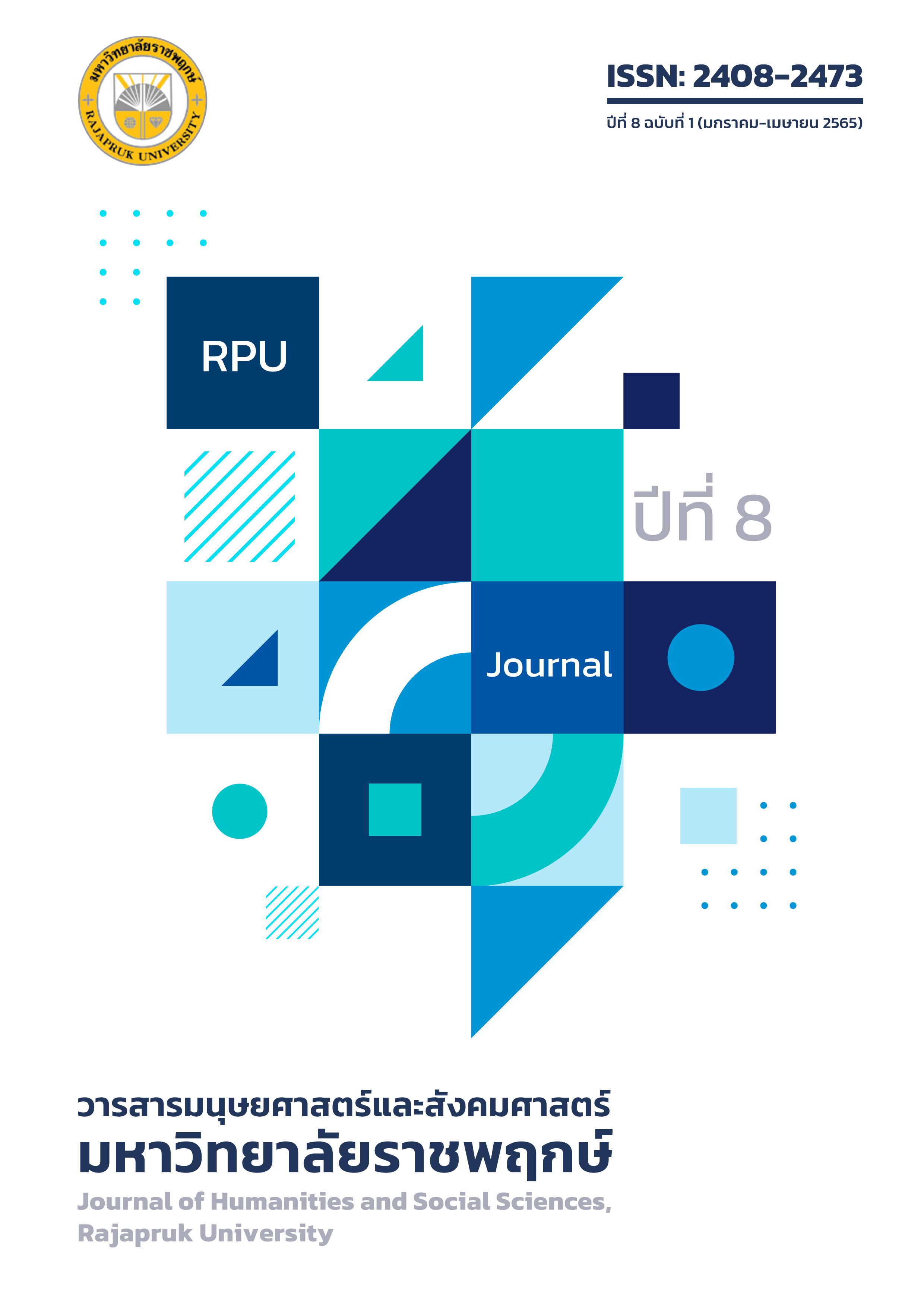The Study Models of Conflict Management in the Community: A Case Study of Bueng Samakkhi District, Kamphaeng Phet Province
Main Article Content
Abstract
The objectives of this research were 1) to study the level of conflict management in the community 2) to compare the differences in personal factors with the conflict management in the community and 3) to study models of community conflict management in Bueng Samakkhi District, Kamphaeng Phet Province. Demographic data is a committee that is considered to have enough power. In Buengsamakkee District, conflict of laws, gambir Province, four districts, 45 villages, 270 respondents. From taro Yamann's formula, in 95% confidence and quality data, the main information provider is the village committee. The research tools are a questionnaire and interviews. The researcher chose to use statistics for data analysis as follows: Descriptive statistics. By distributing it in terms of frequency, percentage, mean and standard deviation. Inferential statistics The statistics used in the test analysis are the t-test, and One-Way ANOVA.
The results of the study were as follows: 1) the degree of conflict management in the community, the average was at a high level. 2) Personal factors of gender, age, educational level, occupation, income, and experience in the position. Different They affect conflict management in communities differently. Were statistically significant at level 0.05 and 3) In the model of community conflict management in Buengsamakee District, Gambi province is an intermediary role as a medium of communication. Both sides are well aware of the conflict.
Article Details
References
กอบกุล วิศิษฏ์สรศักดิ์. (2560). การจัดการความขัดแย้งในงานพัฒนาชุมชน. Veridian E-Journal Silpakorn University ฉบับภาษาไทย มนุษยศาสตร์ สังคมศาสตร์ และศิลปะ, 10(3): 1687-1700.
กัลยา วานิชย์บัญชา. (2556). การวิเคราะห์สถิติ: สถิติสำหรับบริหารและวิจัย. กรุงเทพฯ: โรงพิมพ์จุฬาลงกรณ์มหาวิทยาลัย.
กิตติพัฒน์ คงมะกล่ำ. (2561). การศึกษาแนวทางการจัดการความขัดแย้งของทรัพยากรที่ดินและป่าไม้ในพื้นที่ชุมชนกะเหรี่ยงบ้านพูเม่น ตำบลทองหลาง อำเภอห้วยคต จังหวัดอุทัยธานี. ทุนวิจัยคณะมนุษยศาสตร์และสังคมศาสตร์สาขาวิชารัฐศาสตร์ มหาวิทยาลัยราชภัฏนครสวรรค์.
บงกชมาศ เอกเอี่ยม. (2563). การจัดการความขัดแย้งของทรัพยากรการท่องเที่ยวของผู้นำชุมชนท้องถิ่นในจังหวัดเชียงใหม่. วารสารวิจัยและส่งเสริมวิชาการเกษตร 37(3): 79-93.
รัตนาพร ศิริวงษ์. (2556). การมีส่วนร่วมในการจัดการความขัดแย้งในการบริหารพื้นที่วิหารพระมงคลบพิตร จังหวัดพระนครศรีอยุธยา. วารสารสังคมศาสตร์และมนุษยศาสตร์ 39(1): 221-235.
สมศักดิ์ เติมสายทอง. (2554). การจัดการความขัดแย้งของผู้นำชุมชน กรณีศึกษา องค์การบริหารส่วนตำบลคลองมะเดื่อ อำเภอกระทุ่มแบน จังหวัดสมุทรสาคร. วิทยานิพนธ์ศิลปศาสตรมหาบัณฑิต สาขาวิชาสังคมศาสตร์เพื่อการพัฒนาคณะมนุษยศาสตร์ มหาวิทยาลัยราชภัฏนครปฐม.
อุดม บัวศรี. (2549). เจ้าโคตร: การระงับความขัดแย้งในวัฒนธรรมอีสาน. ทุนวิจัยสำนักศิลปวัฒนธรรม มหาวิทยาลัยขอนแก่น.
Cronbach, Lee. J. (1990). Essentials of Psychology Testing. 5th ed. New York: Harper Collins Publishers Inc.


